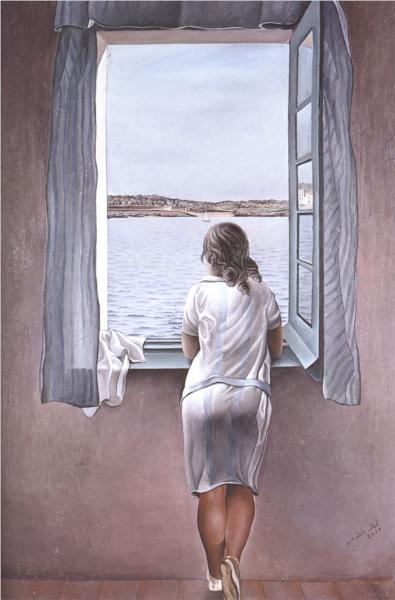
In the emotions, the first step toward accomplishing anything is being willing. This is far more basic than being eager or enthusiastic.
- We can easily forgive a child who is afraid of the dark; the real tragedy of life is when men are afraid of the light. [Anonymous; often incorrectly attributed to Plato.]
- Knowing that something is wrong without actively trying to fix it is worse than ignorant neutrality. [Attributed to Anna Malaika Nti-Asare.]
This section begins with a digression. When politicians or judges make decisions along ideological lines, often it is because they are unwilling to consider the opposing side. In everyday life, when someone refuses to acknowledge what nearly everyone else sees as obvious, it may be because the person is unwilling to see what is there to be seen. Without willingness and honesty, and openness to new information or a new perspective, a great intellect bears no better fruit than an uninformed one. It cannot find the truth because it is unwilling to see it.
Einstein said “science without religion is blind.” As the biographer Walter Isaacson explains, Einstein did not use “religion” to mean belief in a god or gods. He was referring to “those who are thoroughly imbued with the aspiration toward truth and understanding.” He was referring to willingness, the seminal aspiration of ethics and morality. As Einstein observed, only those imbued with that aspiration can create science.
We cannot accomplish anything without being willing to arise from our beds and engage the world, or simply to confront ourselves if the accomplishment resides within us.
This early in our calendar year, we are treating willingness at the most fundamental level, far behind what Einstein had in mind. Yet as with science, willingness is only a first but a necessary step toward making use of our talents and abilities. We cannot accomplish anything without being willing to arise from our beds and engage the world, or simply to confront ourselves if the accomplishment resides within us.
Real
True Narratives
Technical and Analytical Readings
Photographs
Documentary and Educational Films
Imaginary
Fictional Narratives
Poetry
Music: Composers, artists, and major works
George Frideric Händel, 12 Concerti Grossi, Op. 6, HWV 319-330 (1739) (approx. 160’) (recordings) is a set of concerti from the Baroque era, which borrows from various other composers and covers a wide range of simple musical ideas. Top recorded performances are by English Concert in 1982, English Chamber Orchestra in early 1980s, Handel & Haydn Society in 1992, Academy of Ancient Music in 2005, and The Avison Ensemble in 2010.
Other works:
- Jacques-Martin Hotteterre’s Baroque-era works baroque-era works began to explore a musical instrument that was still in its development, the transverse flute: music for flute (volume 2), pieces for flute, Pieces pour flute traversiere avec la basse (1715).
- Louis Nicolas Clérembault and Louis Marchand, harpsichord works
- Johann Friedrich Doles, 6 Keyboard Sonatas (approx. 58’)
- Johann Krieger, complete harpsichord and organ music
Albums:
- Karine Polwart, “Scribbled in Chalk” (2006) (48’): songs evoking a young woman’s eagerness to engage the world.
Music: songs and other short pieces
- Aretha Franklin, “Willing to Forgive” (lyrics)
Visual Arts
- Boris Kustodiev, At the Window: Portrait of I.B. Kustodieva (1910)
Film and Stage
- The Men, about a paraplegic war veteran who is coaxed back into an important engagement